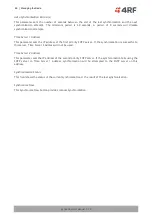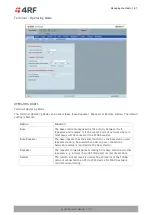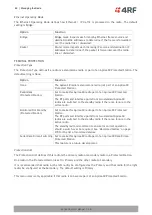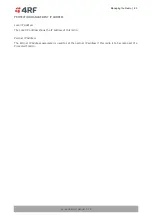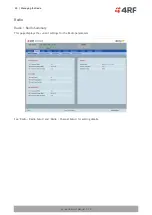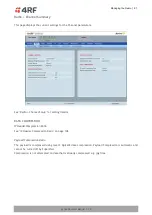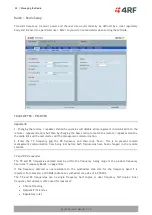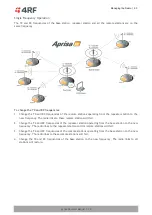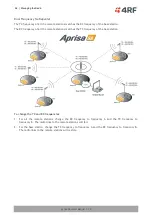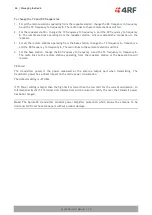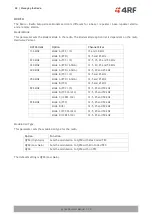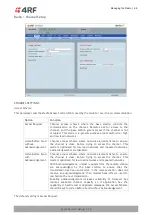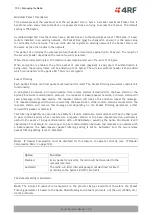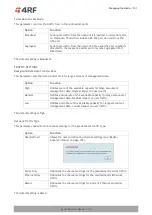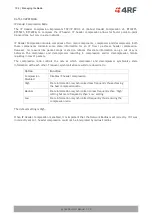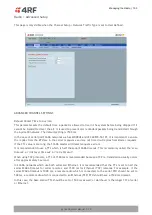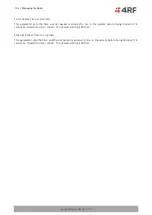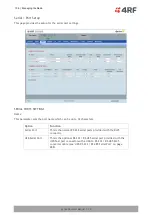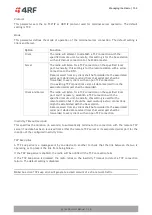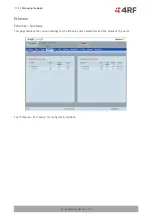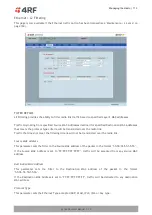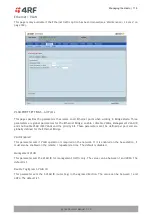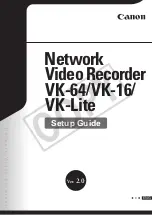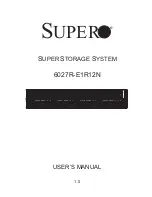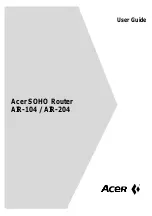
100 | Managing the Radio
Aprisa SRx User Manual 1.3.0
Maximum Packet Size (Bytes)
This parameter sets the maximum over-the-air packet size in bytes. A smaller maximum Packet Size is
beneficial when many remote stations or repeater stations are trying to access the channel. The default
setting is 1550 bytes.
As radios dispatched from the factory have a Packet Size set to the maximum value of 1550 bytes, if a new
radio is installed in an existing network, the Packet Size must be changed to ensure it is the same value
for all radios in the network. The new radio will not register an existing network if the Packet Size is not
the same as the other radios in the network.
This packet size includes the wireless protocol header and security payload (0 to 16 bytes). The length of
the security header depends on the level of security selected.
When the security setting is 0, the maximum user data transfer over-the-air is 1516 bytes.
When encryption is enabled, the entire packet of user data (payload) is encrypted. If authentication is
being used, the security frame will be added (up to 16 bytes). The wireless protocol header is then added
which is proprietary to the Aprisa SR. This is not encrypted.
Packet Filtering
Each Aprisa SR radio can filter packets not destined for itself. The Packet Filtering parameter controls this
functionality.
In an Aprisa SR network, all communication from remote stations is destined for the base station in the
Aprisa SR network communication protocol. In a repeater or base-repeater network, a remote station will
send a message to the base station. The repeater station will receive this and then repeat the message.
The repeated message will then be received by the base station. Other remote stations connected to the
repeater station will receive this message and depending on the Packet Filtering parameter, either
forward this packet or discard it.
This filtering capability can provide the ability for remote stations to communicate with each other (peer
to peer communication) when connected to a repeater station or to a base-repeater station, particularly
useful in the event of losing communication with a SCADA Master, assuming the Aprisa SR network is still
operational. For example, to create peer to peer communication between two remotes in a network with
a base-repeater, the base-repeater packet filtering setting is set to 'Automatic' and the two remotes
packet filtering setting is set to 'Disabled'.
Note:
IP Header Compression must be disabled for this feature to operate correctly (see ‘IP Header
Compression Ratio’ on page 102).
Option
Function
Disabled
Every packet received by the radio will be forwarded to the
relevant interface.
Automatic
The radio will filter (discard) packets not destined for itself
according to the Aprisa SR traffic protocols
The default setting is Automatic.
Note:
The Aprisa SR network is transparent to the protocol being transmitted; therefore the Packet
Filtering parameter is based on the Aprisa SR addressing and network protocols, not the user (SCADA, etc.)
traffic protocols.

